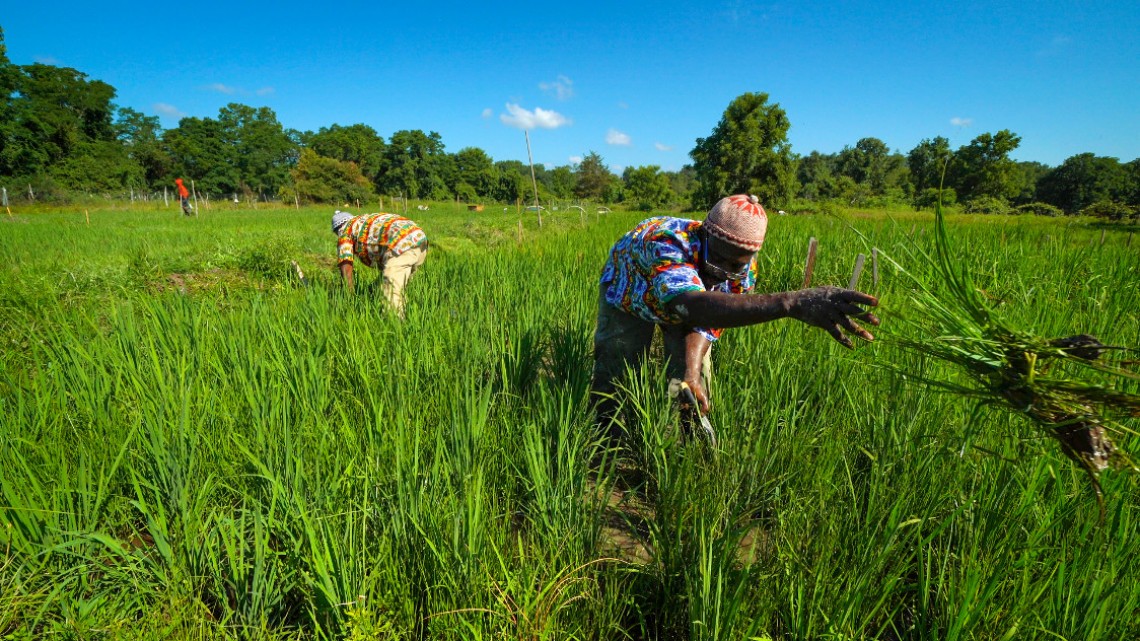
Nfamara Badjie (left) and Moustapha Diedhiou weed the fields at the Badjies' rice farm in Ulster Park, NY.
News directly from Cornell's colleges and centers
Black farming and food security topic of next Rural Humanities webinar
By Susannah Deily-Swearingen
As part of a conversation on Black land ownership, farming and food security, Rural Humanities will offer a webinar, “Black Land Matters: A Rural Humanities Webinar on Black Farming and Food Security,” on March 4 at 5:00 p.m. The event is free and open to all; registration prior to the event is recommended.
The webinar will feature Natalie Baszile, filmmaker and author of the novel Queen Sugar, and Karen Washington, farmer and co-owner at Rise & Root Farm in Chester, New York, and activist and co-founder of Black Urban Growers (BUGS). Their discussion will be moderated by Anu Rangarajan, director of the Cornell Small Farms Program. The panelists will discuss how discriminatory practices at the national and local levels, intimidation and legal loopholes are responsible for the loss of Black-owned land, as well as how activists and advocates are working to rectify the problems.
Advocates for African American farmers have long stressed the imperative of community food security as a primary reason for their work, Rangarajan said. The potential for food insecurity arises from the national problem of diminishing acres of farmland owned or worked by African Americans.
“Of more than 57,000 farmers in New York, only 139 (less than 1%) of identify as Black,” said Rangarajan. “New efforts locally and nationally are reframing the narratives about Black Americans and their connections to land and agriculture. Through the activism of Black farmers and food systems advocates, focused education, training and fund-raising efforts have emerged to help Black farmers find their own land and write their own legacies for agriculture.”
“This webinar represents one of the primary ways in which the Rural Humanities initiative is foregrounding the historical and contemporary lives of peoples who are not or who are inadequately identified with the landscapes in our region,” said Gerard Aching, co-principal investigator of Rural Humanities and professor of Africana and Romance studies in the College of Arts and Sciences. “Rural Black Lives, this year's focus, emerged from an urgency to create an opening for reflecting on, discussing, and finding ways to engage with the anti-Black racism that we witnessed in specific policing incidents and, especially, in ongoing cultural, economic, sectorial, and institutional biases, such as those that Black farmers have faced in our country.”
The Rural Humanities initiative, housed in the Society for the Humanities, is an Andrew W. Mellon-supported initiative in public and engaged humanities that uses the tools of the humanities to critically approach, learn from, make visible and support the realities of rural America, particularly in Central-Western New York: its histories, cultures, challenges, and futures.
Susannah Deily-Swearingen is ACLS Emerging Voices Postdoctoral Fellow, Rural Humanities.
Media Contact
Get Cornell news delivered right to your inbox.
Subscribe
